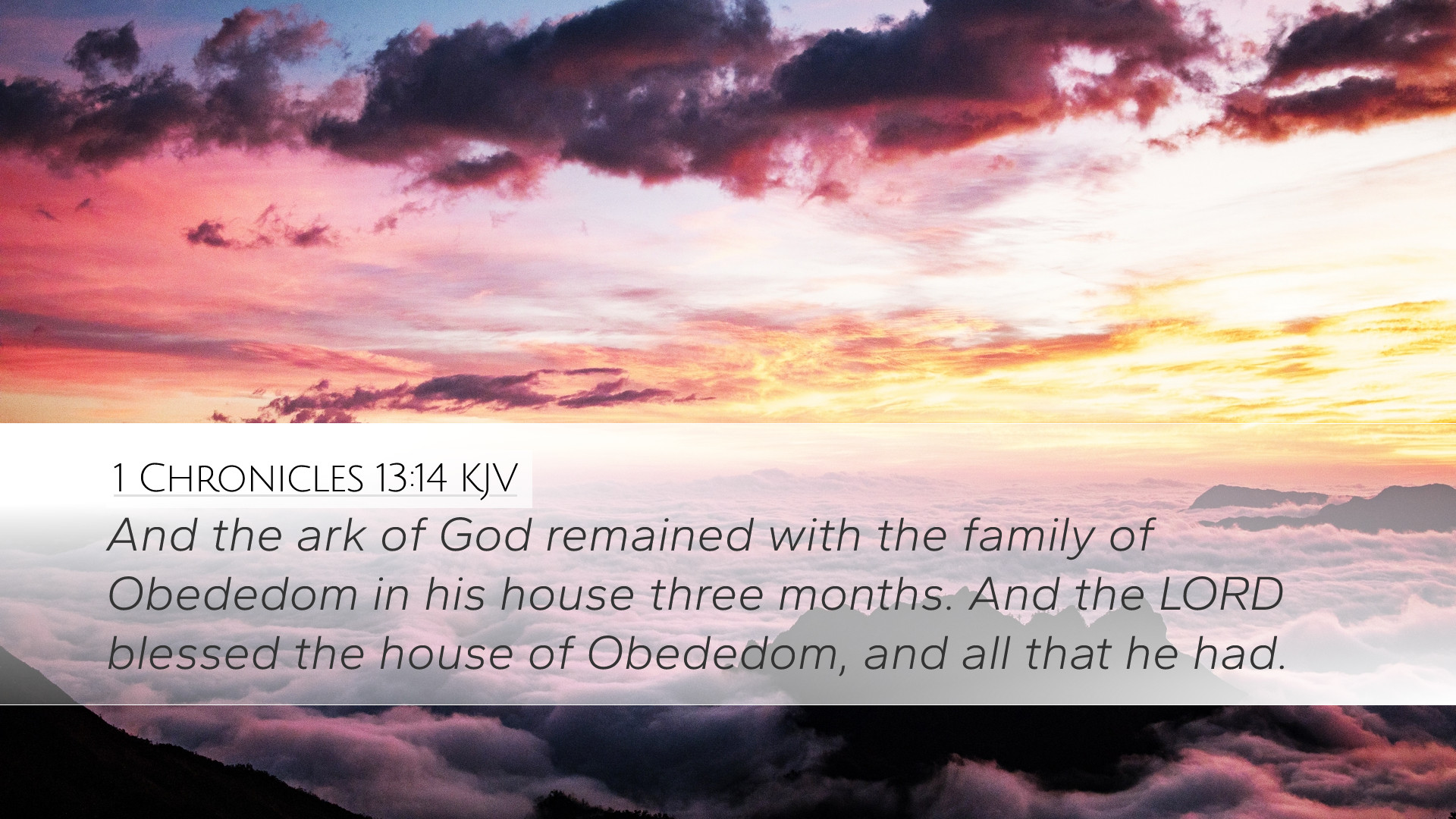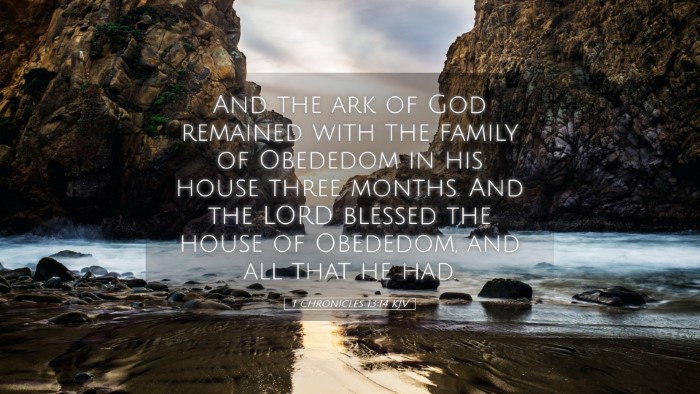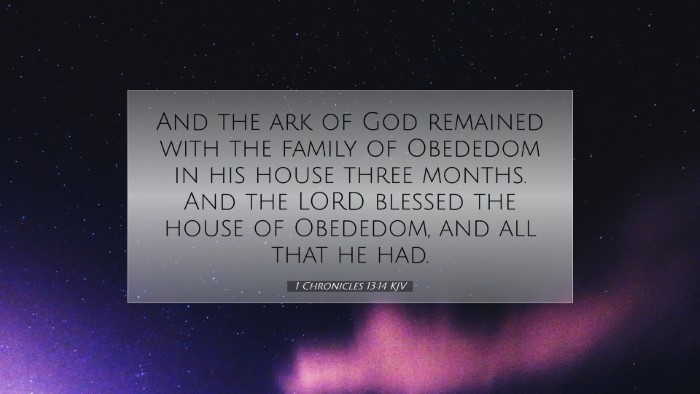Commentary on 1 Chronicles 13:14
Verse Context: 1 Chronicles 13:14 reads, "And the ark of God remained with the family of Obed-edom in his house three months: and the Lord blessed the house of Obed-edom, and all that he had." This verse occurs in the narrative of David's endeavors to bring the Ark of the Covenant to Jerusalem, reflecting on the implications of this event for Israel as a whole.
Introduction to the Commentary
This verse serves as a pivotal moment in the chronicler's account, highlighting the significance of God's presence and the blessings that accompany it. The following insights are drawn from a variety of public domain commentaries to enrich the understanding of this text for pastors, students, theologians, and Bible scholars.
Historical Background
Understanding the historical background of 1 Chronicles is crucial for interpreting this passage. The book was written during a time when the Israelites had returned from Babylonian exile and were rebuilding their national identity. The chronicler emphasizes David's role in uniting the tribes of Israel and establishing Jerusalem as the religious and political capital.
Exegesis of the Verse
The Ark of God: The Ark represents God's covenant with Israel, symbolizing His presence among His people. The attempt to transport the Ark to Jerusalem in this chapter illustrates the importance of establishing a central worship site. However, prior negligence in following God’s prescribed method of transporting the Ark led to tragic consequences, teaching that obedience to divine commandments is crucial.
The Family of Obed-edom: Obed-edom, a Gittite, stands as a contrast to the failures of others involved in the handling of the Ark. His home is blessed due to the presence of the Ark, signifying that God's blessings are not bound to ethnic or social status but are granted according to His sovereign choice. This points to the universal nature of God's grace.
Duration of the Stay: The Ark remained in the house of Obed-edom for three months. This specific time frame demonstrates a season of preparation and testing. It also serves as a direct divine response to David's previous efforts and missteps in bringing the Ark to Jerusalem. The three months suggest a period of reflection on the importance of proper worship and reverence for God.
Theological Implications
The Blessing of the Lord: The blessings that came upon Obed-edom and his household illustrate the intimate connection between God's presence and His blessings. As pointed out by Matthew Henry, this verse highlights that the presence of God brings fortune and happiness. It serves as a reminder to believers of the transformative power of God when one lives in accordance with His will.
God's Sovereignty: The account emphasizes God's sovereignty in choosing to bless whom He will. Albert Barnes notes that God's favor can enhance the lives of even the most humble and marginalized. The rapid blessings that follow God’s presence encourage believers to seek and prioritize a relationship with Him above all else.
Practical Application
- Seeking God's Presence: This passage encourages individuals and congregations to earnestly seek the presence of God in their lives, which results in true blessings and prosperity.
- Preparation for God's Presence: Before approaching God, preparation and reverence are essential. This is evident in David's initial failure and Obed-edom’s subsequent experience of blessing.
- God’s Grace and Favor: The blessing of Obed-edom serves as promise of God’s favor on households that honor Him. The modern application could signify the importance of fostering environments in families and communities where God is revered.
- The Importance of Obedience: The contrast between David’s initial error and Obed-edom’s subsequent blessings teaches that obedience to God’s instructions is paramount in experiencing His blessings.
Conclusion
In summary, 1 Chronicles 13:14 encapsulates profound truths about God's presence, His blessings, and the importance of faithful worship. The experiences of Obed-edom are not merely historical occurrences but serve as instructive lessons for all generations. As believers reflect on this passage, may they be motivated to live in accordance with God's purposes, seeking His presence and experiencing the fullness of His blessings in every aspect of life.
Further Reflection
The narrative challenges readers and congregations to consider how they treat the sacred and the ways they pursue worship. Are we treating God's presence lightly? Or are we recognizing it as the source of all blessing? These reflections hold vital importance for the spiritual vitality of today's church.


